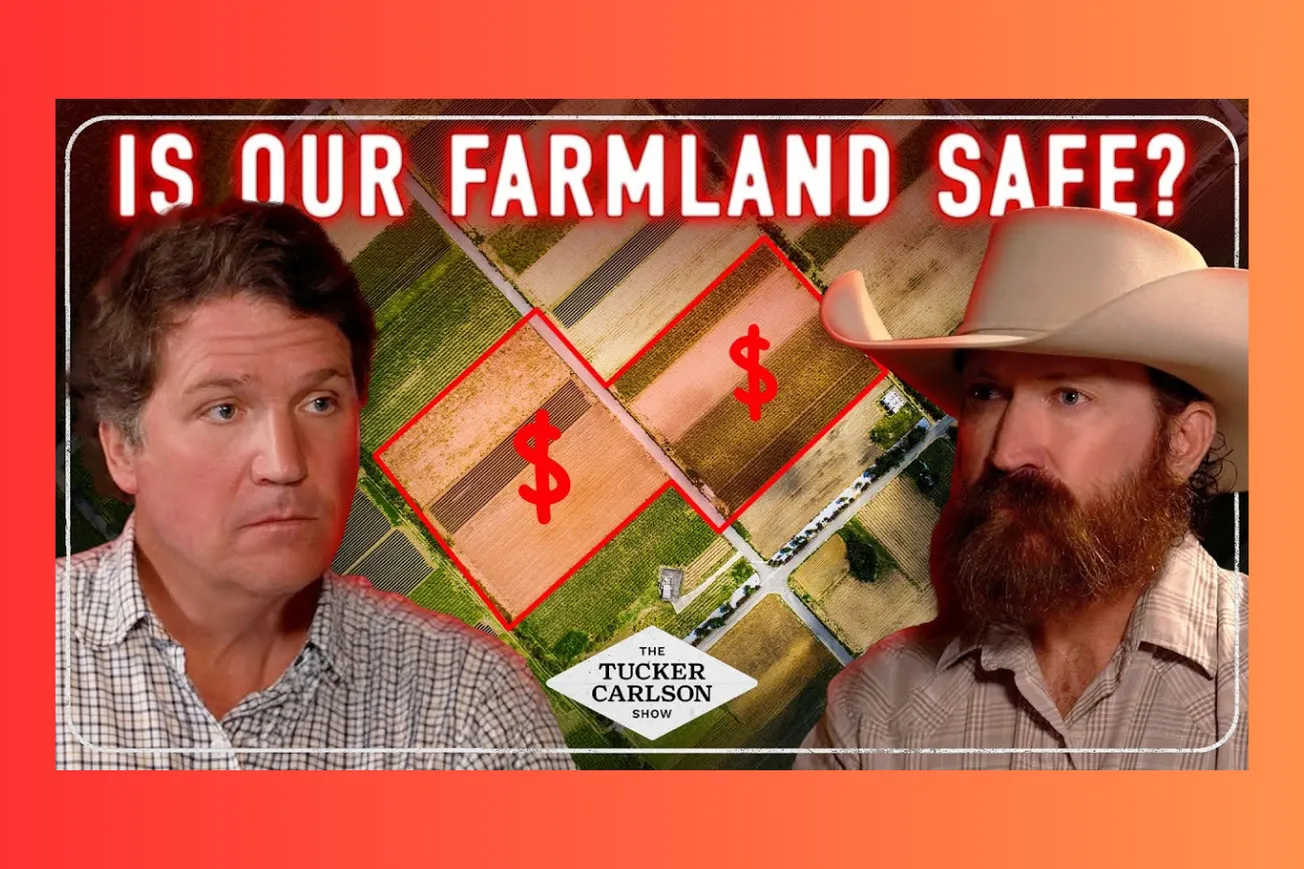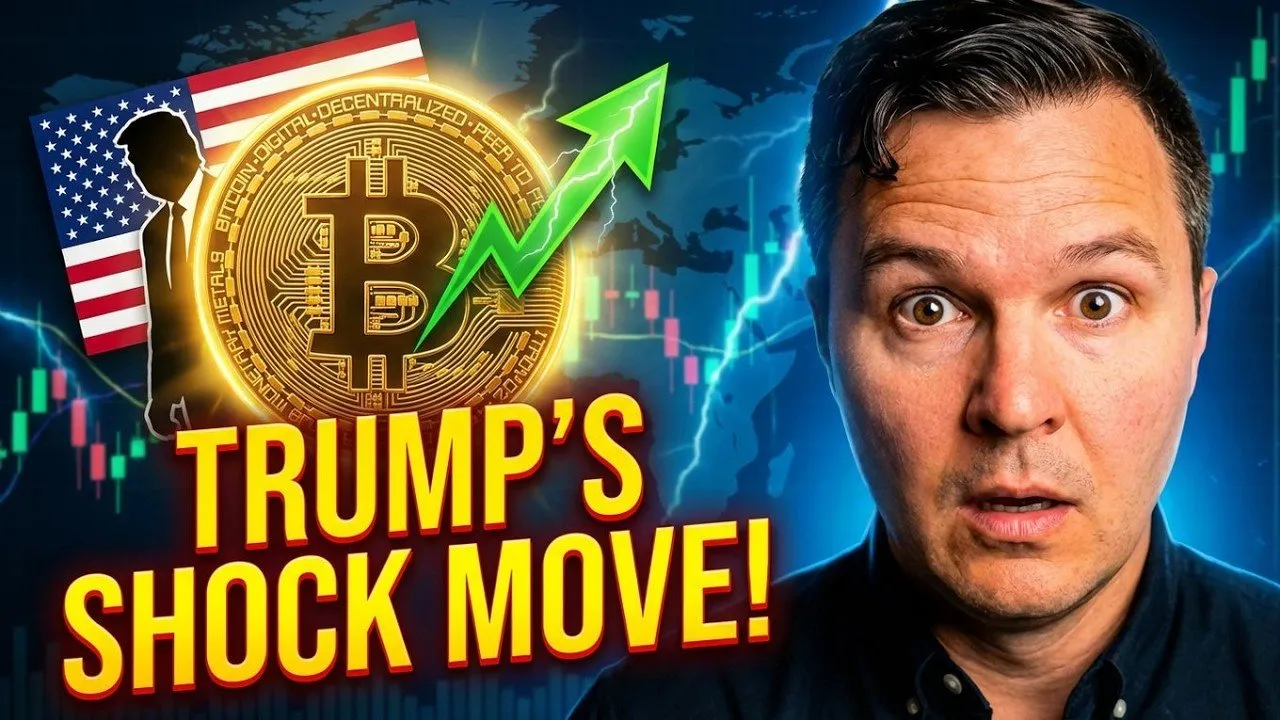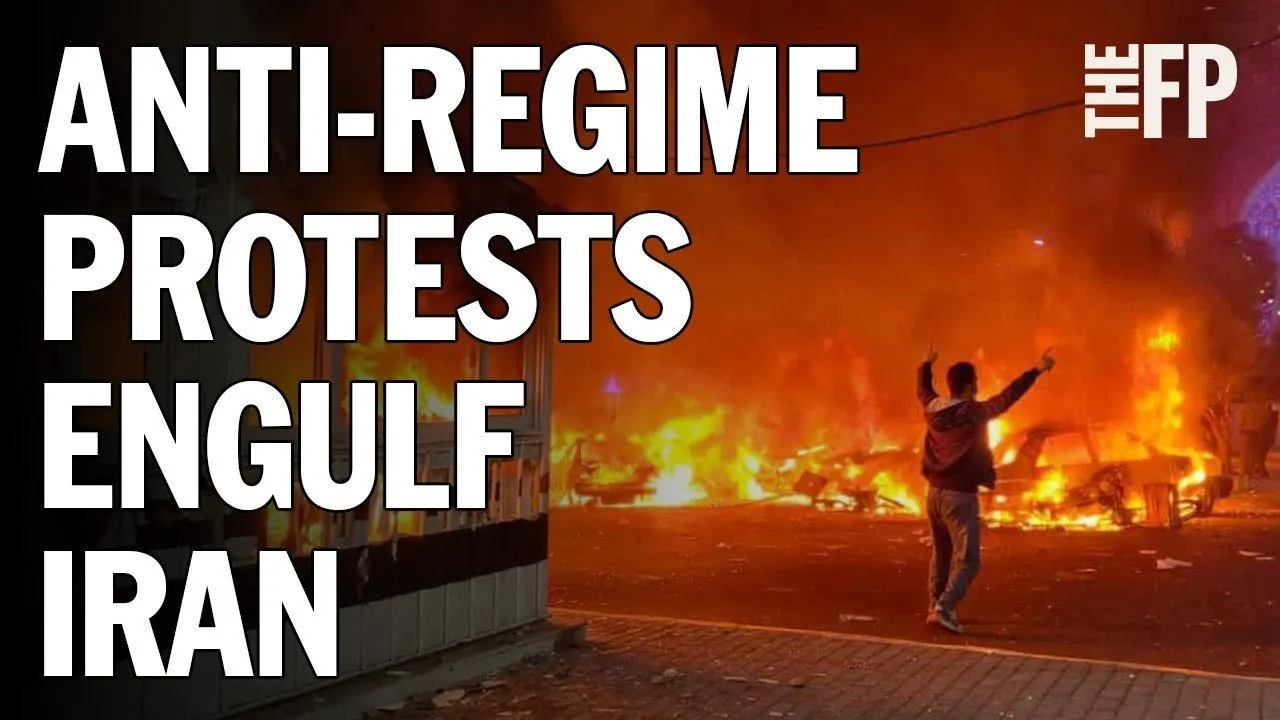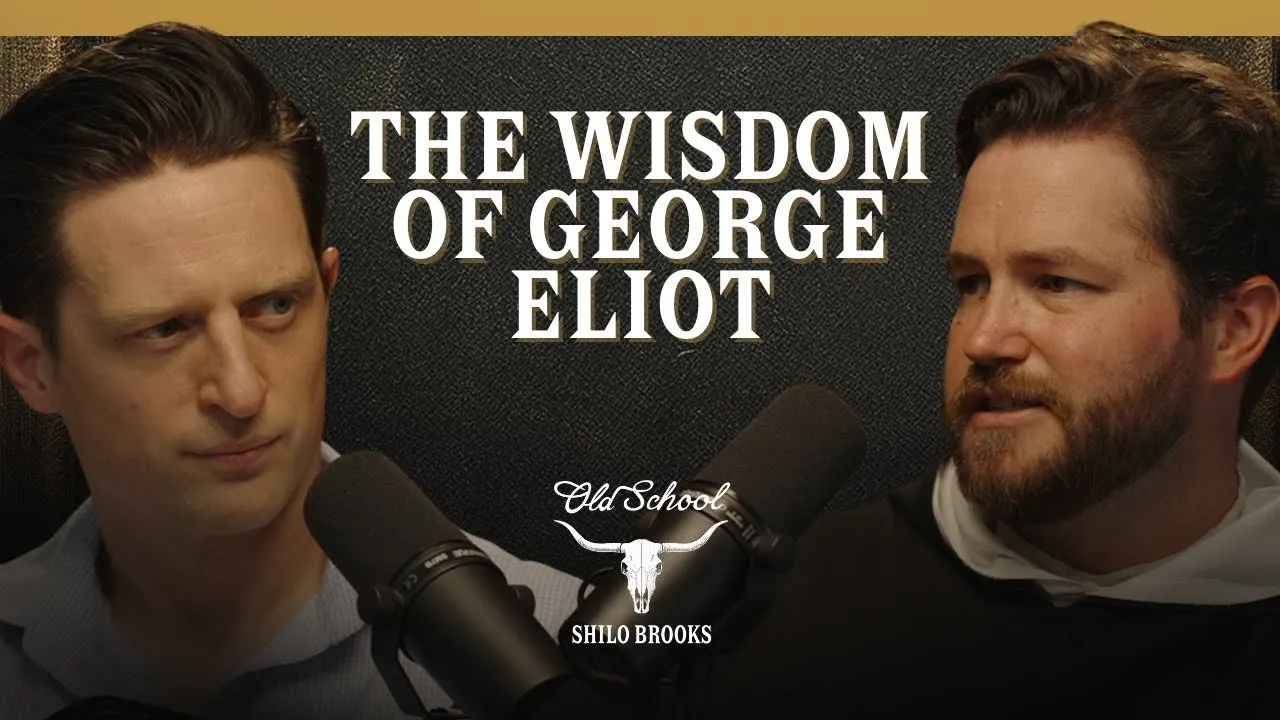Table of Contents
Most people don't expect a horse trainer from a town of fewer than 1,000 people to single-handedly stop the federal government from selling off millions of acres of public land. But that's exactly what Braxton McCoy did – and his story reveals something profound about what it means to be American.
Key Takeaways
- A small-town Idaho horse trainer stopped a massive federal land sale that would have affected millions of acres across the American West
- Combat wounds from an Iraq suicide bombing led to years of opioid addiction, revealing the spiritual and physical toll of pharmaceutical dependence
- The debate over public lands isn't really about conservation versus development – it's about who gets to own America itself
- Foreign entities, including Chinese interests, already own significant portions of American land, creating national security concerns
- Rural America's ranching families depend on public grazing allotments that have existed since the 1930s, making land sales an existential threat
- The connection between land and American identity runs deeper than policy debates – it's about the frontier experience that shaped our national character
- Immigration patterns in low-population Western states could flip electoral outcomes if combined with land development projects
- Multiple-use land management, established in 1976, represents the correct balance between conservation and economic activity
- Getting young Americans back outdoors and engaged with public lands is crucial for long-term conservation success
The Unlikely Advocate Who Changed Everything
Here's the thing about Braxton McCoy – he never wanted to be a public figure. The guy just wanted to train horses, write books, and take his kids fishing. But sometimes history has other plans for people.
Growing up in southern Utah where "cows outnumbered us probably 12 to 1," McCoy lived the kind of rural American childhood that's becoming increasingly rare. His family had been working that land since the 1830s, part of the Mormon migration west that helped define the American frontier experience. His father was a horse trainer and electrician, making ends meet the way so many rural families do – with multiple jobs and deep roots in the community.
What's fascinating is how McCoy ended up at the center of a massive political fight without any political ambitions whatsoever. When people kept pushing him to run for office, his response was simple: "I want to write my books and hang out with my kids and ride horses and go fishing and hunting." That authenticity, that genuine lack of political calculation, might be exactly why he succeeded where career politicians failed.
The federal land sale proposal wasn't some abstract policy debate for McCoy. This was about his people, his way of life, and the future of the American West. As he puts it, "I love my people and the land is a part of my people. Those two things are inextricably connected." That connection runs deeper than most people realize – it's not just sentimental attachment, it's about survival.
From 9/11 to Iraqi Battlefields: The Making of a Warrior
McCoy's path to Iraq started like so many rural kids of his generation. He was 17, skipping school with his cousins, when they watched the Twin Towers fall on live television. Despite having "no love lost" between rural Utah and New York City, his reaction was immediate and visceral: "I don't like them but that's still my brother. You don't get to punch my brother in the face."
That sentiment drove thousands of rural American kids to enlist after 9/11. McCoy gave his mother an ultimatum: sign the papers now so he could get a little more money, or wait until he turned 18 and he'd enlist anyway. She signed. He went to Fort Benning, then to war.
What happened next reveals both the complexity of the Iraq conflict and the human cost of poor strategic decisions. McCoy joined a Personal Security Detail team – essentially the Army's version of the Secret Service, as he describes it. They were tasked with protecting military personnel conducting various missions, including the deeply flawed effort to recruit Iraqi police officers.
One of McCoy's most powerful early memories from Iraq involved a night raid on a compound. As a 19-year-old kid pumped up for combat, he was excited about the prospect of "blowing up a building." But when they reached the target house, he saw something that changed everything: a line of sandals by the front door, arranged from largest to smallest, ending with "a 2-inch pair of pink flip-flop deals."
McCoy had just left his little sister with his mother, and she was roughly the same age as whoever owned those tiny pink sandals. In that moment, the human reality of war hit home. "I went from wanting to do that to not wanting to do that really fast," he recalls. "That really helped right from the jump solidify that these were actual people."
This experience shaped his entire approach to the war. Instead of becoming "overly aggressive and uncompassionate," he maintained his humanity throughout his deployment. It's a lesson that would serve him well in later political battles – the ability to see opponents as human beings rather than enemies to be destroyed.
The Bombing That Changed Everything
Seven months into his deployment, McCoy's war came to a devastating end. He was providing security for a Marine element recruiting Sunni Iraqis to become police officers – part of the deeply flawed post-invasion strategy that had Sunnis policing Shias and vice versa. As McCoy notes, "You'd have to be that dumb" to think ancient tribal conflicts could be ignored in conducting a war.
The mission was supposed to last three days. On day four, McCoy was questioning Iraqi recruits with his interpreter when a man frantically approached, trying to warn them about seeing "a grenade with wires." The language barrier created confusion – they thought he meant a tripwire when he was actually describing a suicide vest.
Minutes later, a semi-truck crashed through their eastern perimeter. Everyone opened fire, scattering Iraqi civilians everywhere. In the chaos that followed, as they tried to reorganize the lines separating people with different types of identification, a suicide bomber struck.
The explosion killed or wounded 106 people. Two Americans died: Sergeant Kane, a dog handler whose canine Bruno had detected the bomber and tried to pull him down, and Lieutenant Colonel McLoughlin, a 33-year-old officer who didn't need to be anywhere near the danger but chose to help anyway. McCoy describes him as representing the kind of leadership the military doesn't produce enough of anymore.
For McCoy, the bombing meant devastating injuries: bilateral femur fractures, broken tibias, shattered hips, broken bones throughout his right hand, a severed median nerve at his wrist, brain injuries, broken ribs, and a broken back. The force of the explosion came from ball bearings packed into the suicide vest – essentially getting hit with "mega buck shot," as he describes it. He still carries about 12 of those ball bearings in his body.
The Long Road Back: Walter Reed and Recovery
What followed was a nightmare of medical complications that reveals the hidden costs of war. McCoy spent four months at Walter Reed, but not by choice. First came a mysterious infection that affected all wounded soldiers returning from Iraq. Then gangrene developed due to poor wound care. Blood clots required an IVC filter to prevent pulmonary embolisms. Each setback delayed his recovery and kept him trapped in a hospital environment he describes as "Soviet block architecture."
The isolation was crushing for someone from such a small, tight-knit community. McCoy found solace in unexpected places – actor Brian Dennehy spent hours discussing the Civil War with him and brought him Shelby Foote's trilogy. Utah Senator Orrin Hatch, despite their political differences, proved genuinely helpful in navigating military bureaucracy. These human connections mattered enormously to someone stuck in an institutional medical system.
But the real battle was just beginning. McCoy left Walter Reed on a massive dose of opioids – 380 milligrams per day. What started as necessary pain management became a five-year addiction that fundamentally changed who he was as a person. The drugs didn't just manage pain; they altered his entire relationship with reality, with other people, and ultimately with God himself.
The Spiritual Battle Against Opioids
McCoy's discussion of opioid addiction goes far deeper than the typical medical or policy analysis. He talks about it in spiritual terms that most people avoid but that ring absolutely true to anyone who's witnessed addiction up close. "You're not the same person," he explains. "What do you mean when you say you were not the same person? Did your soul leave and go somewhere else?"
His answer cuts to the heart of what addiction really is: "I think what you mean is that you have given control of you over to someone or something else." This isn't just poetic language – it's a theological understanding of how external substances can literally change who you are at the deepest level.
The opioids made him "dishonest, angry, bitter, deeply depressed." But more than that, they made him "angry at God" – which McCoy believes is the ultimate destination of all sin. The drugs created a spiritual separation that went far beyond physical dependence.
Two of McCoy's friends died from opioid overdoses during their recovery period. He was lucky to avoid that fate, but not lucky enough to avoid years of spiritual and emotional destruction. When he finally got clean, the change was dramatic and immediate. Within two weeks, "it genuinely felt like a cloud had been lifted from my vision. The world felt and looked different to me."
This experience gave McCoy a unique perspective on the opioid crisis that's devastated rural America. He sees it not just as a medical problem or even a criminal justice issue, but as spiritual warfare being waged against American communities. The Sackler family and other pharmaceutical interests didn't just create a public health crisis – they created a spiritual crisis that's torn apart the social fabric of entire regions.
From Personal Recovery to Public Advocacy
McCoy's transition back to normal life wasn't immediate. It took about eight years before he could run again. When that moment finally came – during a kid's baseball practice when he took a couple of steps that "just felt different" – he called his war buddies to share the news. His friend Casey started crying. McCoy felt "like Seabiscuit or something."
That physical recovery paralleled his return to the life he'd known before the war. He went back to training horses, guiding hunts, and living the "normal kid from the Mountain West" lifestyle he'd always wanted. He met someone wonderful, got his life back on track, and seemed destined for a quiet existence away from public attention.
But around 2015-2016, McCoy got drawn into public lands advocacy through what was then called the Public Lands Initiative. The more he learned about the various proposals to sell off federal lands, the more his opinions shifted toward stronger conservation positions. This wasn't the typical environmental activism most people associate with land protection – this was someone defending his people's way of life.
The irony is that McCoy faced his fiercest opposition from other conservatives. "These are right-wing people," he notes about the hate mail he received. "My own side very angry at me over this issue." That's when you know someone is onto something important – when they're taking fire from their supposed allies.
The COVID Catalyst and Twitter Truth-Telling
McCoy's emergence as a public voice came about almost by accident. He'd been doing keynote speaking for construction companies and tech organizations, carefully avoiding political topics to protect his income. As he puts it, "bankers and things like this, they don't like people with opinions like me so they don't hire people like me."
Then COVID hit. One by one, his speaking engagements got canceled. Within a week, all seven or eight scheduled events for the year were gone. McCoy's reaction was liberating: "You know what? F*** it. I'm just going to tell people what I really think about things."
That decision to speak authentically on Twitter grew into a platform that eventually led to appearances on shows like Sean Ryan's podcast. It's a perfect example of how authenticity can be more powerful than calculation. McCoy succeeded precisely because he wasn't trying to build a political career – he was just telling the truth about things he cared about.
The Real Stakes in the Public Lands Debate
Here's what most people don't understand about the public lands issue: it's not really about conservation versus development. It's about who gets to own America itself. The proposed land sales weren't primarily motivated by deficit reduction, despite the official justification. As McCoy points out, selling federal land in places like Utah at "fair market value" of $500 per acre wouldn't make a meaningful dent in the national debt.
The real issue is who would be buying that land. Foreign entities, including Chinese interests, already own substantial acreage in states like Utah. Saudi interests own massive amounts of land in Arizona, using their financial resources to drill deep wells that lower aquifers and force out American ranchers who can't afford thousand-foot wells.
McCoy's analysis is brutal in its clarity: "I can't see why you wouldn't want to limit having more of that problem." The question isn't whether America should allow foreign investment – it's whether we should allow foreign ownership of America itself. Most other countries don't allow this. You can't buy property in Mexico unless you're a Mexican citizen.
The multiple-use mandate established in 1976 represents the correct balance. Federal lands are held "in trust for the American people for hunting, recreating, grazing, and extraction of all forms just whenever it makes sense." This isn't radical environmentalism – it's practical management that maximizes value for actual Americans.
The Ranching Reality and Rural America's Future
Small family ranches throughout the West depend on public grazing allotments that have existed since the Taylor Grazing Act of 1936. These operations typically run "90% of their ground on public allotments and 10% on deed," with that private acreage used for hay production and winter pasture. Without access to public lands, these ranches simply couldn't exist.
Some people dismiss this as "welfare for rich people," but McCoy's response cuts to the heart of the matter: "This is welfare for people who are scraping by." The margins on cattle are thin. These aren't wealthy agribusiness operations – they're families who've been working the same land for generations.
The broader context makes this even more concerning. America's beef herd is smaller now than it was in 1991, despite having maybe 100 million more people. We're increasingly dependent on imported beef, much of it from Brazil, while our domestic production capacity shrinks. Meanwhile, about 30 plants process 80% of American beef, creating massive consolidation that drives local butchers out of business.
Add in the impact of illegal immigration on meat processing – every raid on packing plants results in hundreds of arrests – and you see a systematic destruction of American food security. The artificial deflation of beef prices through illegal labor undercuts American ranchers while creating dependence on foreign sources.
Immigration and the Transformation of the West
McCoy's analysis of immigration's impact on Western politics is particularly insightful. These are "low population states" with "extremely low" population density. Wyoming has around 300,000 people who voted for Trump, but "there's only one of that guy" – meaning future Republican candidates won't necessarily generate the same turnout.
In this context, 50,000 new residents could flip entire states. McCoy points to the money flowing into immigrant resettlement in the West: "4 million, 15 million, 50 million" in grants to NGOs and state governments to bring refugees to places like Idaho Falls, which he describes as historically "the most Mormon town in the United States."
The result? "I see burkas in Idaho Falls now." McCoy is careful to note that he doesn't hate anyone, but "I don't have to hate someone to not want to be replaced by them or have my children replaced by them." More importantly, these refugees didn't choose to move to a place where "it's 40 below for a week a year." Someone put them there, which raises obvious questions about motivation.
If Western states flip the way Colorado has – from conservative to "affirmatively evil" as McCoy describes it – Republicans will never win another presidential election. Colorado has become a place where "Christians are having trouble living" due to anti-Christian policies. The political implications are obvious, but the cultural implications run much deeper.
The Frontier Thesis and American Identity
McCoy's most profound insight concerns the relationship between land and American identity. He believes "the ethnogenesis" of Americans as a distinct people "happened on our frontiers." The Revolutionary War was "in some ways a very European war," but crossing the plains and settling the West created something entirely new.
"From Marietta colony in the Ohio River Valley to the 49ers," Americans developed as a people through the frontier experience. The values Americans associate with their national identity – "hard work, perseverance, grit, love of country and county" – all tie back to "what our people went through crossing those plains, fighting Indians and Mexicans and then the Brits again."
This isn't just historical romanticism. McCoy argues that the frontier provided a "pressure relief valve" that prevented renewed civil war during Reconstruction. "There are towns in Idaho that were established by Confederates" who had "had enough" of military occupation and moved west rather than fight again.
Without that frontier experience, Americans might have remained just another collection of European ethnicities who happened to live in North America. The land itself – the challenge of conquering it, the process of learning to live on it – created the American people as a distinct entity.
The Wolf Reintroduction Parallel
McCoy draws a telling parallel between the public lands debate and Colorado's wolf reintroduction program. Urban voters on the Front Range voted by a narrow margin to "dump wolves on ranching communities" that opposed the measure. It's not about wolves – it's about the Front Range's hatred of rural communities.
This reveals the deeper dynamic at work in so many of these environmental battles. As McCoy puts it, professional environmentalists "don't even love trees" – they'll "cut down the trees to put a solar farm in" without hesitation. "They hate trees because they hate God and they hate God's creation."
The pattern is consistent: offshore wind farms that wreak havoc on fisheries, policies that drive ranchers out of business, restrictions that prevent Americans from using their own land. It's not about environmental protection – it's about power and control over the people they see as enemies.
Building a Conservation Coalition for the Future
Through his Sagebrush Institute, McCoy is working to "reshape the narrative and make conservation cool on the right wing again." This isn't about compromise with the environmental left – it's about reclaiming conservation as a fundamentally conservative value.
The target audience is young Americans who've "been let down by everyone their whole life." As McCoy puts it, "we got to win here and we cannot let them down." The message is simple: "This is yours, man. This belongs to you regardless of what people tell you. This is yours right now."
Getting young people engaged with public lands isn't just about politics – it's about creating the next generation of conservationists. McCoy notes the "decline in hunting and fishing licenses nationally" with concern. People don't know what public lands look like, don't understand what they'd lose if those lands were sold off.
The solution involves practical engagement: taking kids shooting on public lands, teaching them to hunt and fish, getting them outside and away from phones and video games. University programs that teach duck hunting and outdoor skills matter more than policy papers.
The Union Argument and National Solidarity
For Americans who might never visit Western public lands, McCoy offers a different argument: "We are union." Even if someone from Maine never plans to hunt elk in Idaho, they should support Western conservation because Western states support policies that protect Maine's fisheries and way of life.
This reciprocal relationship is what makes America work. The farm bill helps Iowa farmers even though most Americans live in cities. Federal disaster relief helps coastal states even though most Americans don't live near oceans. Similarly, protecting Western public lands benefits all Americans, even those who never see them directly.
McCoy's vision is ultimately about preserving the America that his generation fought for in Iraq and Afghanistan. Not the America of government bureaucrats and corporate interests, but the America of small towns and family ranches, of people who know their neighbors and take care of their land.
That America is disappearing, not just because of economic pressures or demographic changes, but because of deliberate policies designed to destroy it. The public lands debate is really about whether anything authentically American will survive the next few decades.
In the end, McCoy's story is about more than one man stopping a land sale. It's about what happens when ordinary Americans decide they've had enough and start fighting back. Sometimes it takes an "idiot horse trainer" to save what the experts and politicians are determined to destroy.





